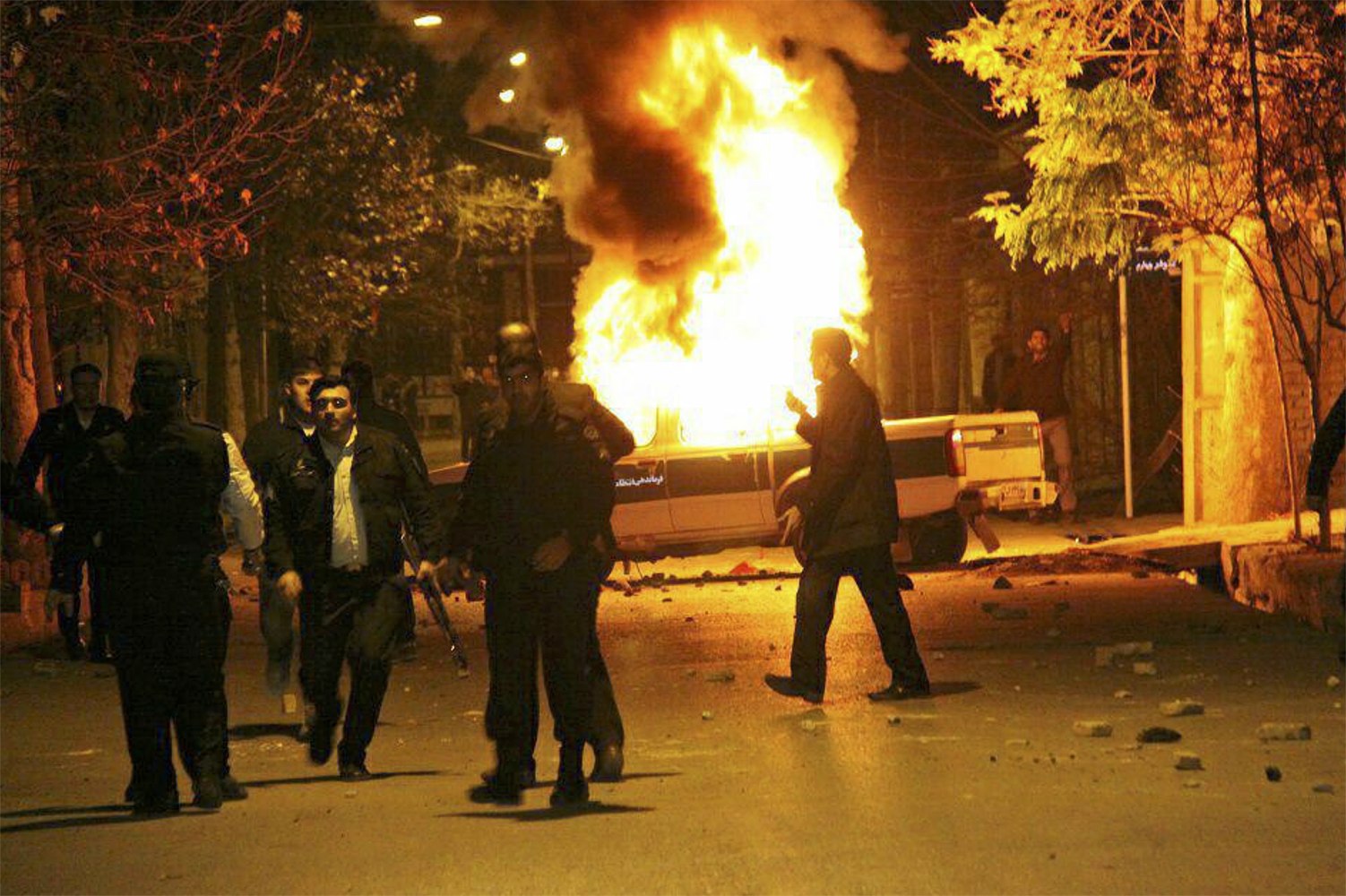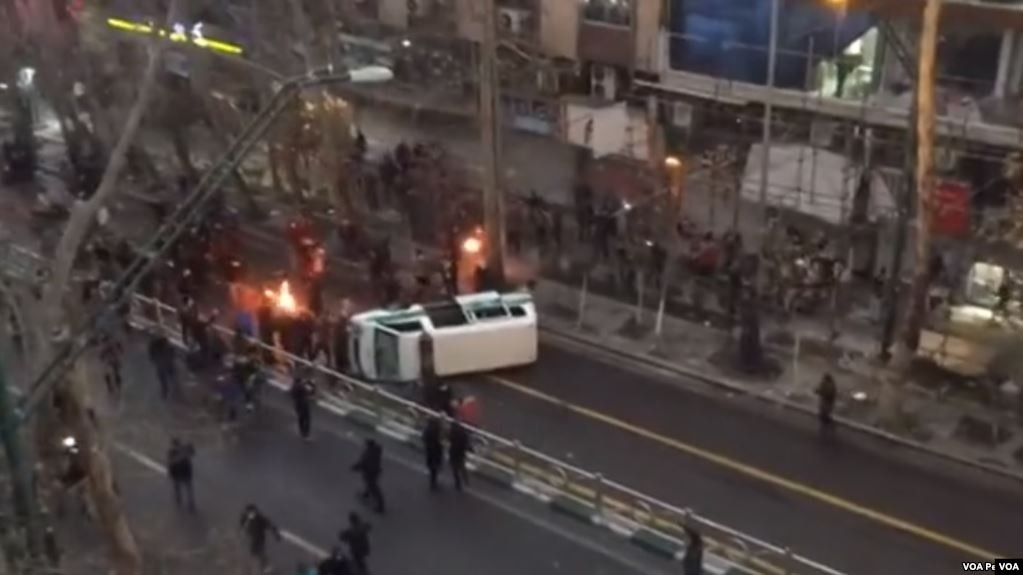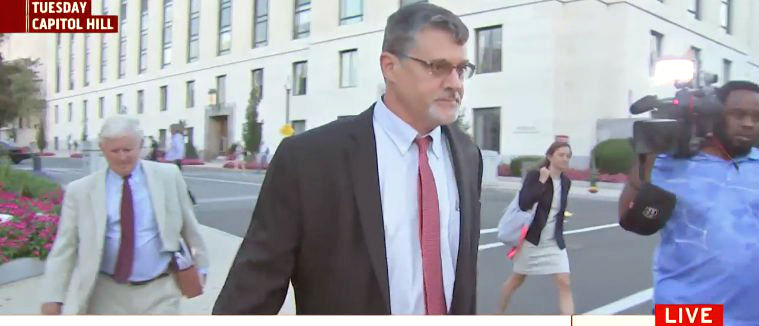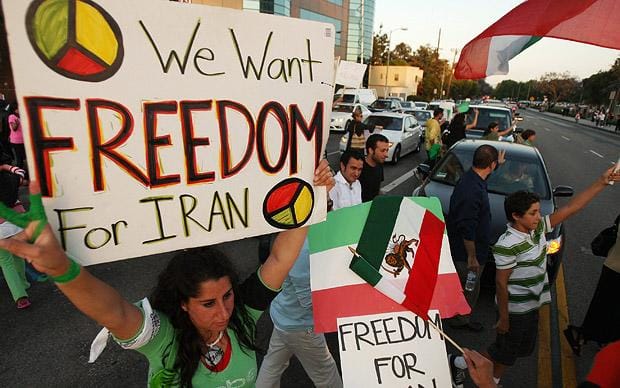Very little was advancing in this case that media was able to report. Now it seems the matter of the Pakistani IT personnel that worked for Debbie Wasserman Schultz and several other Democrat congressional members had a much more nefarious operation in Washington DC and in Falls Church, Virginia. Embarrassment is permeating through some key offices in Congress and if any of the people associated with this case were aware of any piece parts, well…draining the swamp could be in over drive soon…or should be.
Ali A. al-Attar, born in Baghdad in 1963, a 1989 graduate of the American University of Beirut Faculty of Medicine. He subsequently emigrated to the United States and set up a practice in internal medicine in Greenbelt, Maryland, a suburb of Washington D.C. Al-Attar eventually expanded his business to include nine practices that he wholly or partly owned in Virginia and Maryland.
Al-Attar prospered and moved to upscale McLean, Virginia, but he soon found himself in trouble with both regulatory and tax authorities. In April 2009, his license to practice medicine was suspended by the Maryland State Board of Physicians due to “questionable billing practices.” Al-Attar refused to cooperate with the Board in subsequent investigations, which included inquiry into the level of care he was providing as well as his “unprofessional conduct” relating to sexual relationships with patients. His license to practice medicine was revoked in September 2011.
Al-Attar was also being investigated by the FBI for large scale health care fraud in 2008-9. He and his partner Dr. Abdul H. Fadul charged insurance companies more than $2.3 million for services their patients did not actually receive, with many of the false claims using names of diplomats and employees enrolled in a group plan at the Egyptian Embassy in Washington. In one case, the doctors claimed an embassy employee visited three of their clinics every 26 days between May 2007 and August 2008 to have the same testing done each time. The insurance company paid the doctors $55,000 for more than 400 nonexistent procedures for that one patient alone.
Al-Attar exploited the fact that he had a number practices in two states with separate billing and banking arrangements, including individual tax numbers, which enabled him to shift money around to fool his own accountants regarding his actual income. As in the case of the Egyptian Embassy, he was able to multiple-bill for the frequently fabricated services rendered once he obtained insurance information.
Al-Attar was indicted by the federal government acting on behalf of the IRS in March 2012 for having fraudulently prepared tax returns between 2004 and 2006. The IRS claimed that he and his business partner Fadul systematically diverted payments from the accounts of their several offices into their personal accounts, siphoning off more than $500,000. The government case involved the instances of fraud that were easiest to prove in court, but it was likely just the tip of an iceberg with millions more in additional money being diverted to offshore accounts in the Middle East and elsewhere.
Dr. Ali A. Al-Attar fled the United States after the indictment to avoid arrest and imprisonment. Late in 2012 he was observed in Beirut, Lebanon conversing with a Hezbollah official. It turns out that al-Attar is only a first generation Iraqi. He was born in Baghdad, but his parents were both from Iran. More here.
DC: The used car dealership known as CIA never seemed like an ordinary car dealership, with inventory, staff and expenses.
On its Facebook page, CIA’s “staff” were fake personalities such as “James Falls O’Brien,” whose photo was taken from a hairstyle model catalog, and “Jade Julia,” whose image came from a web page called “Beautiful Girls Wallpaper.”
If a customer showed up looking to buy a car from Cars International A, often referred to as CIA, Abid Awan — who was managing partner of the dealership while also earning $160,000 handling IT for House Democrats — would frequently simply go across the street to another dealership called AAA Motors and get one.
“If AAA borrows a car to Cars International and they have a customer, it was simply take the car across the street and sell it, and then later on give the profit back or not,” Nasir Khattak, who ran the longstanding AAA dealership, testified in a lawsuit. “There was no documentation… If you go and try to dissect, you will not be able to make any sense out of them because there were many, dozens and dozens, of cars transferred between the two dealerships and between other people.”
Khattak did not explain why he would ruin his existing business to help the Awans. “All of those transactions was to support Cars International A from AAA Motors,” he testified. “That’s why I did not make any money from my dealership because my resources were supporting Cars International A.”
He said only Imran Awan knew what became of the money. “It was Imram, [Abid] Awan’s brother, who was running the business in full control,” he said.
Imran Awan and his family members were congressional IT aides who investigators said made unauthorized access to the House Democratic Caucus server thousands of times. At the same time as they worked for and could read all the emails of congressmen who sat on committees like Intelligence, Homeland Security and Foreign Affairs, they also ran a car dealership that took money from a Hezbollah-linked fugitive and whose financial books were indecipherable and business patterns bizarre, according to testimony in court records.
While Imran and Abid Awan ran their car dealership in Falls Church, Va. in the early part of the decade, Drug Enforcement Agency officials a few miles away in Chantilly were learning that the Iranian-linked terrorist group frequently deployed used car dealerships in the US to launder money and fund terrorism, according to an explosive new Politico expose.
The money that disappeared between the Awans’ dealership, some $7 million in congressional pay, the equipment suspected of disappearing from Congress under their watch, and their other side businesses — all while they displayed few signs of wealth and frequently haggled in court over small amounts of money — raise questions about whether the Awans might have been laundering money or sending it to a third party.
“Based on the modest way Awan was living, it is my opinion that he was sending most of his money to a group or criminal organization that could very well be connected with the Pakistani government,” said Wayne Black, a private investigator who served as law enforcement group supervisor in Janet Reno’s Miami public corruption unit. “My instincts tell me Awan was probably operating a foreign intelligence gathering operation on US soil.”
Officials told Politico that prosecutors refused to help them punish top Hezbollah operatives involved in its money laundering network because of political concerns, such as fears of jeopardizing the Obama administration’s deal with Iran. Similarly, the Awans, who had close relationships to House Democrats including Debbie Wasserman Schultz and Gregory Meeks, have not been charged with any crimes surrounding the dealership nor with their House activities. The disclosure of a House IT breach shortly before the election by Pakistani-born Democratic staffers would have had political fallout.
Shortly before the 2016 election, investigators found huge amounts of House equipment unaccounted for under the Awans’ stewardship, and when they looked into the family further, they found that they had logged in to members’ computers for whom they did not work. There were signs that the House Democratic Caucus’ server “is being used for nefarious purposes” by the Awans, according to a House investigation, and “steps are being taken to conceal their activity.”
Politico tells the story of Ali Fayad, a “Ukraine-based arms merchant suspected of being a Hezbollah operative moving large amounts of weapons to Syria
Lebanese arms dealer Ali Fayad Ali Fayad, a suspected top Hezbollah operative whom agents believed reported to Russian President Vladimir Putin as a key supplier of weapons to Syria and Iraq, was arrested in Prague in the spring of 2014. But for the nearly two years Fayad was in custody, top Obama administration officials declined to apply serious pressure on the Czech government to extradite him to the United States, even as Putin was lobbying aggressively against it.
Abid Awan is married to a Ukranian named Nataliia Sova, who was herself on the House payroll as an IT aide in 2010 and 2011 for Reps. Emmanuel Cleaver, Ted Deutch, and Gabby Giffords. Abid incorporated Cars International in 2008, and Cars International A in 2009, taking out loans from the Congressional credit union while omitting the dealership from House financial disclosures. It was not clear how he could have been working at both the dealership and a high-paid congressional job.
In 2010, the CIA dealership took a $100,000 loan from Dr. Ali Al-Attar, who is of Iranian heritage and was a minister in the Iraqi government, according to court records. Al-Attar is a fugitive wanted by the U.S. government. Philip Giraldi, a former CIA officer, wrote that Attar “was observed in Beirut, Lebanon conversing with a Hezbollah official” in 2012–shortly after the loan was made.
The money was moved from Ali Al-Attar through accounts intended for Fairfax County real estate. Both Imran Awan and Khattak — who also put up $200,000 in cash as an investor in CIA — had realtors licenses.
It’s not clear where the dealership’s money was going, because it was sued by at least five different people on all ends of a typical car business who said they were stiffed. CIA didn’t pay the security deposit, rent or taxes for its building, it didn’t pay wholesalers who provided cars, and it sold broken cars to people and then refused to honor the warranties, the lawsuits say.
“The consignment agreements state it clearly that either Mr. Awan sells the cars for the agreed price no less $62,200 or return my cars back. I need my cars back,” Issmail Alchaleh, one wholesaler, wrote in court documents. Some of the consignment agreements use the same VIN for multiple cars.
Abid declared bankruptcy in 2010 to discharge debts racked up by the car dealership. One person who was listed on bankruptcy documents as being owed money by the dealership, Rao Abbas, later appeared on the House payroll as an IT aide, even though his most recent job experience was working at McDonalds. Democrats have refused to explain why they hired him.
Abid kept ownership of two houses in the bankruptcy by saying he was separated or divorcing from Sova, but even this year, they were still together, and Sova used Abid’s residence when incorporating her own car companies. Sova established a mysterious company called Alain LLC in 2009, followed by Discover EZ Car Buying Co. in 2014 and Regional Car Center Inc. in 2015. Virginia incorporation documents list Abid’s home address as the businesses’ location, and a Google search did not reveal any evidence of the dealerships existing, which is incongruous for a line of work where basic revenue depends on making sure potential customers know where to find them.
Other opaque companies, such as New Dawn 2001 and Acg LLC, were also established in 2011 out of Imran’s house.
A relative of the Awans told TheDCNF that Abid sent huge quantities of iPads and iPhones to Pakistan and that Imran frequently talked about Russia. They also sent money to a Pakistani police officer. The brothers’ stepmother, Samina Gilani, said in court documents that when the family spends time in Pakistan, the brothers are escorted by a motorcade of Pakistani government agents. Rep. Yvette Clarke, a New York Democrat who employed Abid, filed paperwork saying that $120,000 in technology equipment went missing while Abid managed it for the office.
Despite brothers Imran, Abid and Jamal and Imran’s wife, Hina Alvi, all making chief-of-staff level salaries of $160,000 on Capitol Hill, they displayed few signs of wealth in the US, further raising questions about where all the money was going. Abid is in a lawsuit against his stepmother after Abid replaced her with himself on his father’s life insurance policy, and his attorney, Jim Bacon, told a judge he needed money. Imran’s lawyer said his children were living in squalor. They reported few holdings on their House ethics disclosures.
They bought houses will little money down, then rented them out, insisting that rent be paid in cash, tenants told TheDCNF. Sources said the FBI generated Suspicious Activity Reports hundreds of pages long based on large cash deposits and international wires.
Members of Congress have refused to acknowledge what is well-known among the House bureaucracy, that investigators found conclusive evidence that the Awans wantonly violated House IT regulations. “There’s no question about it: If I was accused of a tenth of what these guys are accused of, they’d take me out in handcuffs that same day,” a fellow House IT aide said. But fellow IT aides with knowledge pertinent to the case said the FBI hasn’t even interviewed them.
Politico’s money-laundering story echoed similar themes: “Right now, we have 50 FBI agents not doing anything because they know their Iran cases aren’t going anywhere,” including investigations into allegedly complicit used-car dealers, a prosecutor said.





 Arab bank, New York
Arab bank, New York


